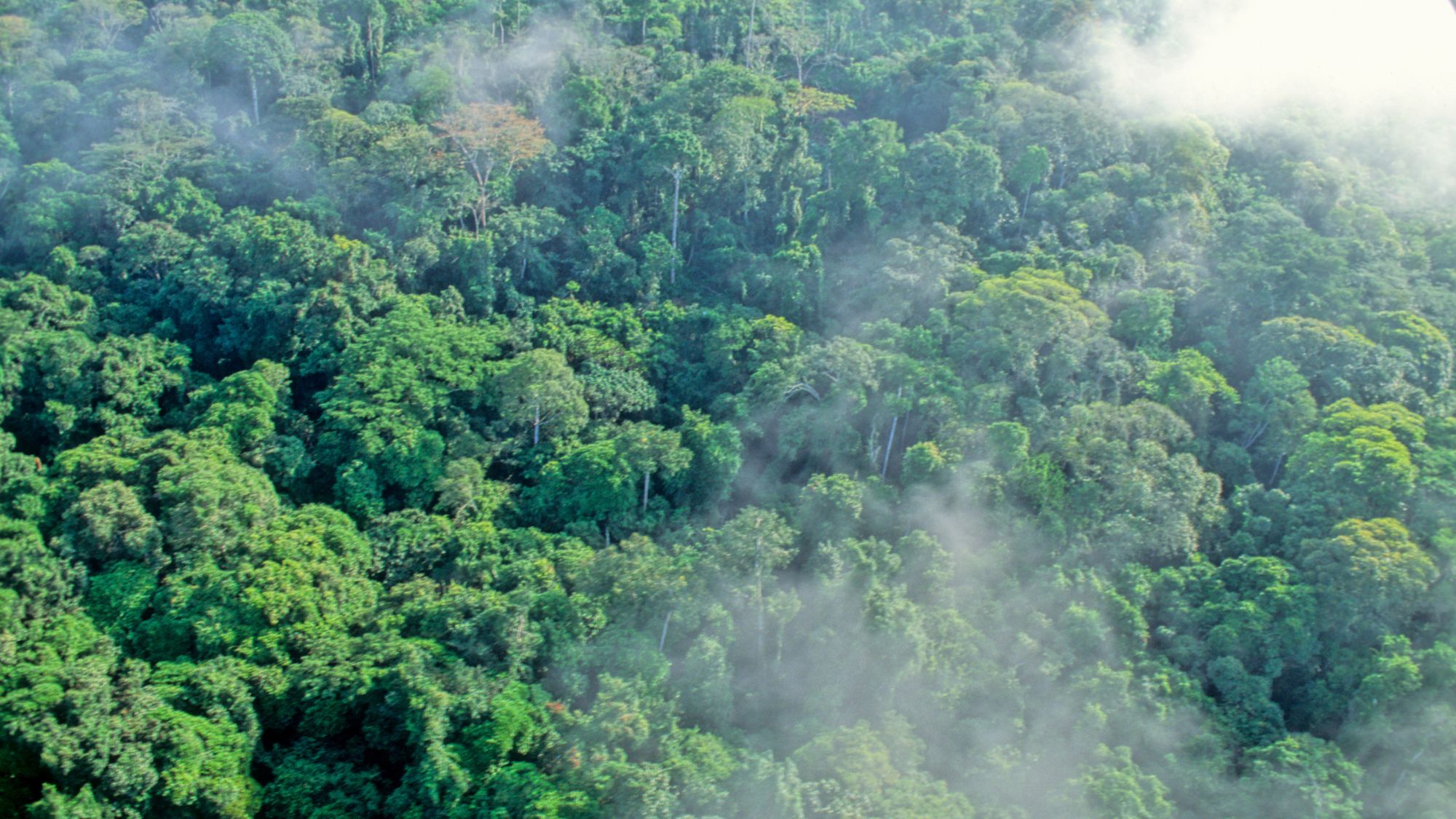The natural glories of Gabon
The small nation is cloaked in forest but 'rewards are huge' for those who go exploring

A free daily email with the biggest news stories of the day – and the best features from TheWeek.com
You are now subscribed
Your newsletter sign-up was successful
Sandwiched between Cameroon and the Republic of the Congo on Africa's west coast, Gabon has long been promoted to tourists as the continent's "last Eden" – and not without justification, says Mike Carter in the FT. This equatorial country is half the size of France, its former colonial power, but home to only 2.2 million people, most of whom live in the coastal cities of Libreville (the capital) and Port-Gentil.
Almost nine-tenths of the rest is cloaked in forest, much of it never significantly disturbed by human activity, and more than 10% of it strictly protected. There's little infrastructure, and only 40,000 tourists visit each year. But for the adventurous few, the rewards are huge, including the chance to see western lowland gorillas, forest elephants, and a vast amount of other spectacular fauna.
The dictator Ali Bongo Ondimba (a keen conservationist) was deposed in a coup d'état last year, but the situation has since been calm. Roads are "hideously rutted", but you can also cover long distances by river boat, and there are some pleasant lodges, such as Ndola and Pongara. To see gorillas, you must tag along with scientific researchers.
The Week
Escape your echo chamber. Get the facts behind the news, plus analysis from multiple perspectives.

Sign up for The Week's Free Newsletters
From our morning news briefing to a weekly Good News Newsletter, get the best of The Week delivered directly to your inbox.
From our morning news briefing to a weekly Good News Newsletter, get the best of The Week delivered directly to your inbox.
The apes' favourite habitat is a swamp, where you might sit and watch an eight-strong family relaxing in a clearing, "bathed in a celestial glow as if stage-lit". Also "thrilling" is the chance to track a 1,000-strong troop of mandrills – the world's largest monkeys, and most likely its biggest primate group – which set the whole forest "vibrating" as they fly through the canopy. You might also see hippos, crocodiles, leopards, manatees, pythons, forest buffalo and plenty of beautiful birds.
And there is much of cultural interest too, not least the shamanic ceremonies of the Bwiti religion, during which participants holding fiery torches perform ecstatic dances to the music of drums and antelope-horn trumpets. They also take iboga, a natural hallucinogen that I found "wild but not unpleasant", but which can have seriously adverse psychiatric or medical effects in some people.
Journeys by Design has trips from $2,000 per night.
Sign up for The Week's Travel newsletter for destination inspiration and the latest news and trends.
A free daily email with the biggest news stories of the day – and the best features from TheWeek.com
-
 The Olympic timekeepers keeping the Games on track
The Olympic timekeepers keeping the Games on trackUnder the Radar Swiss watchmaking giant Omega has been at the finish line of every Olympic Games for nearly 100 years
-
 Will increasing tensions with Iran boil over into war?
Will increasing tensions with Iran boil over into war?Today’s Big Question President Donald Trump has recently been threatening the country
-
 Corruption: The spy sheikh and the president
Corruption: The spy sheikh and the presidentFeature Trump is at the center of another scandal
-
 6 exquisite homes with vast acreage
6 exquisite homes with vast acreageFeature Featuring an off-the-grid contemporary home in New Mexico and lakefront farmhouse in Massachusetts
-
 Film reviews: ‘Wuthering Heights,’ ‘Good Luck, Have Fun, Don’t Die,’ and ‘Sirat’
Film reviews: ‘Wuthering Heights,’ ‘Good Luck, Have Fun, Don’t Die,’ and ‘Sirat’Feature An inconvenient love torments a would-be couple, a gonzo time traveler seeks to save humanity from AI, and a father’s desperate search goes deeply sideways
-
 A thrilling foodie city in northern Japan
A thrilling foodie city in northern JapanThe Week Recommends The food scene here is ‘unspoilt’ and ‘fun’
-
 Tourangelle-style pork with prunes recipe
Tourangelle-style pork with prunes recipeThe Week Recommends This traditional, rustic dish is a French classic
-
 Samurai: a ‘blockbuster’ display of Japan’s legendary warriors
Samurai: a ‘blockbuster’ display of Japan’s legendary warriorsThe Week Recommends British Museum show offers a ‘scintillating journey’ through ‘a world of gore, power and artistic beauty’
-
 BMW iX3: a ‘revolution’ for the German car brand
BMW iX3: a ‘revolution’ for the German car brandThe Week Recommends The electric SUV promises a ‘great balance between ride comfort and driving fun’
-
 Arcadia: Tom Stoppard’s ‘masterpiece’ makes a ‘triumphant’ return
Arcadia: Tom Stoppard’s ‘masterpiece’ makes a ‘triumphant’ returnThe Week Recommends Carrie Cracknell’s revival at the Old Vic ‘grips like a thriller’
-
 My Father’s Shadow: a ‘magically nimble’ love letter to Lagos
My Father’s Shadow: a ‘magically nimble’ love letter to LagosThe Week Recommends Akinola Davies Jr’s touching and ‘tender’ tale of two brothers in 1990s Nigeria